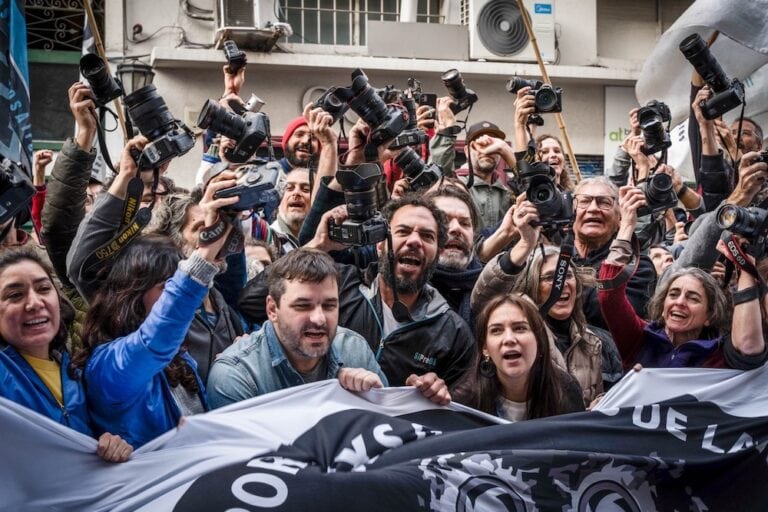(Periodistas/IFEX) – The IV court of the National Appeals Chamber in Criminal and Correctional matters gave journalist Eduardo Kimel a one year prison sentence and fined him US$20,000 as a result of statements contained in his book “La Masacre de San Patricio” (the San Patricio massacre). The book tells the story of the assassination of […]
(Periodistas/IFEX) – The IV court of the National Appeals Chamber in
Criminal and Correctional matters gave journalist Eduardo Kimel a one
year
prison sentence and fined him US$20,000 as a result of statements
contained
in his book “La Masacre de San Patricio” (the San Patricio massacre).
The book tells the story of the assassination of three priests and two
seminary students of the Palotine Order during the last military
dictatorship. The case was initiated by judge Guillermo Rivarola, who
was
offended by statements made in the book
In the book, the journalist states that “during the dictatorship
judges
generally were acquiescent to, if not complicit to, the dictatorial
repression. In the Palotine case, judge Rivarola fulfilled the
majority of
the official requirements of the investigation. However, it is evident
that
a series of decisive factors that could have shed light on the
assassination
were not taken into account. Evidence that the source of the order to
commit
the crime had come from the innermost core of military power paralysed
the
inquiry, bringing it to a standstill.”
Rivarola was in charge of the investigation of the crime which
occurred at
dawn on 4 July 1976 in the San Patricio church, in the Belgrano
neighbourhood, Buenos Aires. On that day, a “task group” (referring to
squads assigned to kidnap or assassinate people during the
dictatorship)
entered the church, woke the priests and seminary students who were
sleeping
in the parish, gathered them up in a hall and shot them.
Rivarola filed charges against Kimel, as he felt that Kimel’s
statements
accused him of having covered up facts and of having violated his
responsibilities as a public servant. In the court’s verdict it was
noted
that “the aforementioned book is marked by an harsh blanket critique
of the
judges who were then members of the judicial power, and especially
against
the defendant Rivarola.”
The verdict contradicted a previous one emitted by the VI Court of the
same
Chamber, whose members absolved Kimel in the same case, and put
together the
first self critique of the justice system for the role it played
during that
era.
According to those judges, Kimel did not blame Rivarola for the
paralysis of
the investigation, but rather the military government that distortedly
submerged the murder, “during a time when constitutional guarantees
were
suspended and when those who should have been helping the legal system
notoriously failed to collaborate with it.” In his “critique of the
justice
system” of the time, Kimel only “exercised his right to report in a
non
abusive and legitimate way and with no intention to damage Rivarola’s
honour.”
In comments to the press, the journalist expressed his indignation
with this
new verdict: “While the assassins and the police officials that
covered up
the case continue to go free, the only person who is charged and
convicted
by the justice system is the author of the book that recounts the
episode.”
The decision was condemned by all the press organisations in
Argentina. In a
press release, the Periodistas Association called it a “disgraceful
sentence” aimed at punishing “the independent press’ efforts to rescue
from
forgetfulness and impunity one of the many atrocities committed by the
last
military dictatorship.”


